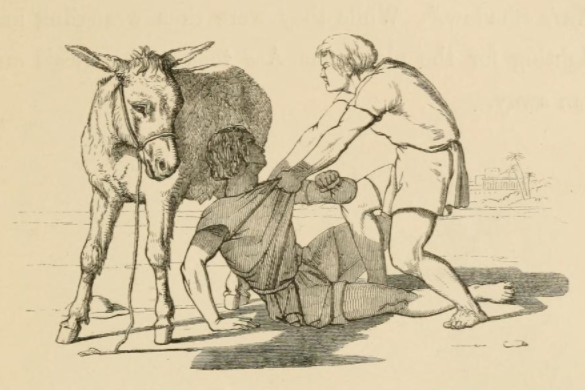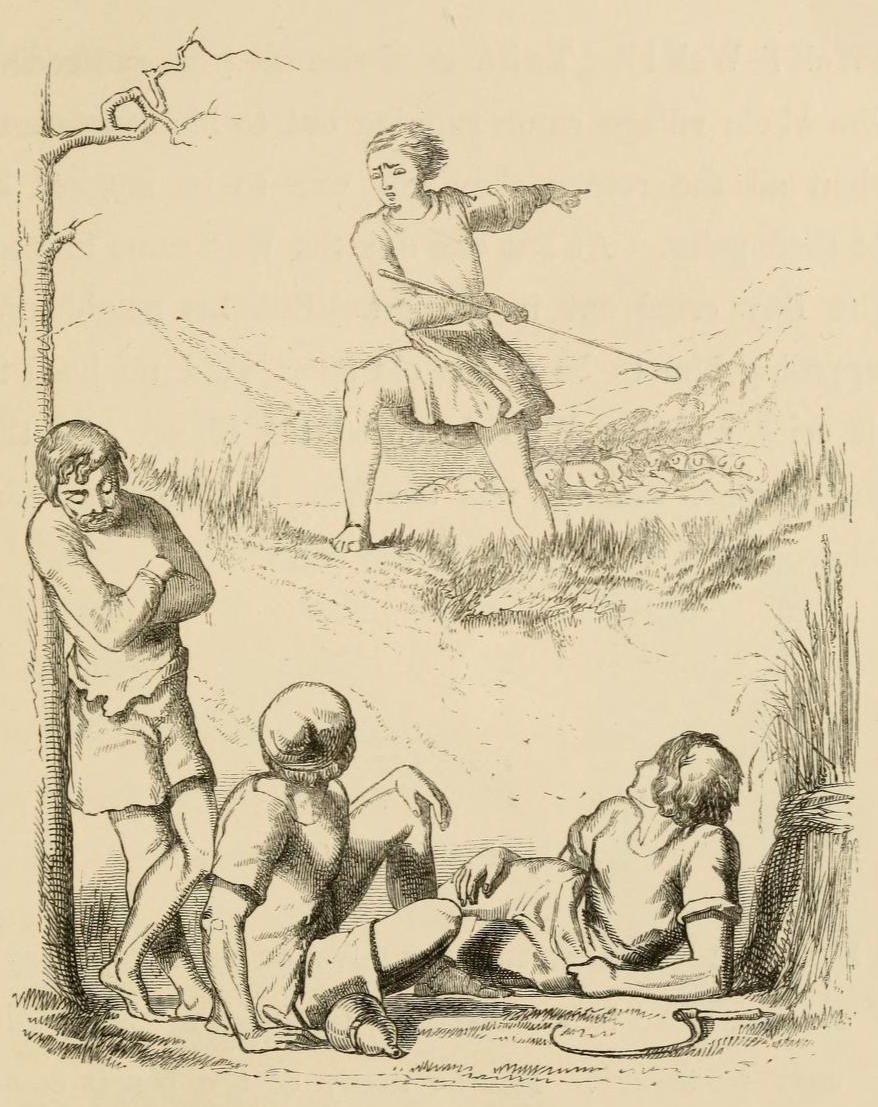1. χιτών ~ χιτῶνος (m.): garment
2. ὄνειρος ~ ὀνείρου (m.): dream
3. σίδηρος ~ σιδήρου (m.): iron; sword
4. ἀρετή ~ ἀρετής (f.): excellence, virtue
5. ὄρνις ~ ὄρνιθος (c.): bird
Here are the proverbs and sayings:
Γαλῇ χιτών.
Τυφλὸν ὄνειρον.
Πῦρ σιδήρῳ μὴ σκαλεύειν.
Ἀρετὴν εἰ μὲν ἔχοις πάνθ᾽ ἕξεις.
Ὄρνιθας ζητεῖς, ἀνέμους θηρεύσεις.
Γαλῇ χιτών.
A gown for a weasel.
More specifically, this means a wedding gown, and the proverb thus refers to something that is useless or absurdly inappropriate: the weasel was supposed to be an old maid in ancient Greece, a spinster who never married, and so she had no need for a wedding gown.
Τυφλὸν ὄνειρον.
A dream (is) blind.
This saying urges people to ignore ill-omened dreams: a dream cannot see into the future, so any messages it conveys are meaningless. Such a proverb indicates that people were normally inclined to put great stock in dreams. We even have a dreambook from ancient Greece, the Ονειροκριτικά of Artemidorus; you can find out more at Wikipedia: Oneirocritica.
Πῦρ σιδήρῳ μὴ σκαλεύειν.
Do not poke the fire with a sword.
Metaphorically, this means that when someone is angry (fire), you should speak to them kindly instead of provoking them with sharp words (sword). This is one of the so-called "symbols" of Pythagoras, which you can read in English here: The Golden Verses of Pythagoras and Other Fragments.
Ἀρετὴν εἰ μὲν ἔχοις πάνθ᾽ ἕξεις.
If you have excellence, you will have everything.
Note the two different forms of the verb ἐχω: the optative in a hypothetical statement, ἔχοις, and the future completing the hypothetical: ἕξεις (rough breathing). The word πάντα loses its alpha before the following vowel, πάντ', and then the final tau aspirates and becomes theta: πάνθ᾽. For more about Greek ἀρετή, see Wikipedia: Arete.
Ὄρνιθας ζητεῖς, ἀνέμους θηρεύσεις.
You are chasing birds; you will catch the wind.
The idea is that you will catch only the wind, and not any birds at all. The proverb thus refers to a fool's errand, like a "wild goose chase" in English. You can also find this proverb with ὄρνις as an alternative accusative plural meaning: Ὄρνις ζητεῖς, ἀνέμους θηρεύσεις. From this Greek word we get English ornithology.
One of the labors of Heracles involved chasing birds, but not just any ordinary birds; these were the notorious birds of Stymphalia: "man-eating birds with beaks of bronze, sharp metallic feathers they could launch at their victims, and poisonous dung" — Wikipedia: Stymphalian birds. Here's a Roman mosaic from Morocco:
Click here to subscribe/unsubscribe to the email list.
.jpg)








.png)




